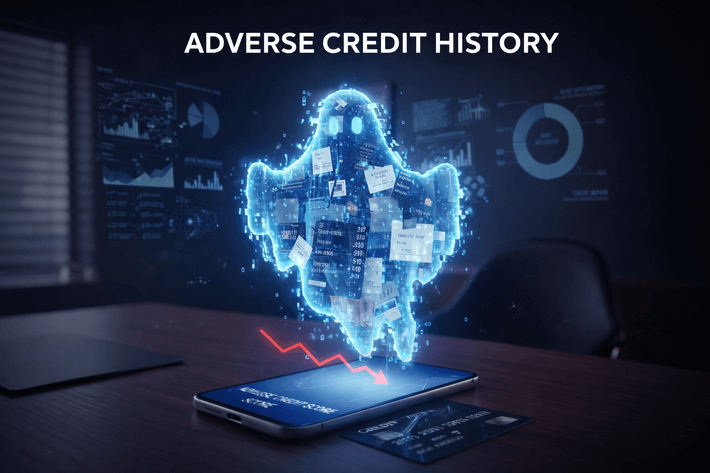CPN Number: Why Buying a CPN is a Scam
Suppose there was a way to leave your bad credit behind and start over with a clean slate? If that were the case, you could get financing for an apartment or car much easier, regardless of your previous credit rating or bankruptcy status. It’s also exactly what credit repair agencies that sell CPNs offer you — a new credit identity.
Read on to find out what a CPN is, whether they’re legal, and what better ways to build your credit history - not to mention, avoid getting scammed - there are.
What Is a CPN?
CPN stands for Credit Privacy Number, and represents a secondary credit number. It's a nine-digit code you can use in place of your SSN in varying situations. CPN numbers are often used by government officials, celebrities, and high-level executives looking to keep certain information private.
Another term, not to be confused with these, is an EIN - an employer identification number. This is also a nine-digit number issued to the Internal Revenue Service's estates, trusts, and business entities. These entities use their EIN to file annual income tax returns, open business bank accounts, and obtain credit.
An employer identification number is the business counterpart to a Social Security number.
Legally, you can be issued a CPN only by the Social Security Administration office (SSA) and only under special circumstances. Bad credit is not one of them. A legally issued CPN is also not a substitute for your Social Security number.
It's still tied to your old SSN, meaning it will still lead to your existing credit profile and cannot eliminate your credit history.
Why Would You Want to Use a CPN?
There are a few reasons to consider using a CPN: The number can be used as a form of protection against identity theft. If someone steals your Social Security number, they can do enormous damage to your credit, such as apply for credit cards, loans, or open bank accounts in your name.
They may also use your employment and medical benefits. The fewer times you use your SSN, the fewer opportunities for it to get stolen.
A CPN can protect your privacy, but you can’t get it legally outside the SSA. So you’ll know you’re dealing with scammers if they’re trying to sell you one, even if they say most celebrities and government officials use one.
Are CPNs Legal?
Using bought CPN numbers is not legal. In fact, CPNs are often part of credit-repair scams. Recently, several credit repair agencies have offered their clients CPN numbers for a fee. These numbers could allegedly hide your lousy credit score. However, these CPN numbers are not legitimate: Instead, they could be Social Security numbers of deceased individuals, inmates, or children.
This means that you're using a stolen SSN of another individual, which is a crime that can lead to jail time. CPNs are not recognized by the government, and using a CPN on any application is considered identity theft.
If obtained legally, CPNs are free. You should therefore consider it a red flag if a company offers to sell you a CPN for a fee as a way to fix your credit rating. Note that others may refer to a CPN as a consumer profile number or a credit protection number. Whichever the name, CPNs sold by agencies are a scam.
If you're contemplating working with a credit repair company to help you rebuild your credit score, here are some things to keep an eye out for:
Threats About Potential Consequences
If someone threatens you with the potential consequences of not buying the CPN, consider it a red flag. This is a way to manipulate you and scam you out of your money.
Upfront Fees
If you find a credit repair company asking you to pay large amounts of money before they start working with you, beware, for they might be scammers.
Falsifying Documents
If a company asks you to forge your credit reports, such as using false contact information, address, or names, you should consider it a red flag. Falsifying documents is always illegal.
If you realize that an entity is trying to scam you, consider reporting them to the Federal Trade Commission or involving a lawyer. That way, you'll save yourself and many other individuals who might have fallen for the same scam.
What Happens if You Use a CPN?
If you see any internet ads or credit companies offering you CPNs, or secondary SSNs, know that they are scammers looking to take your money and leave you paying for the crime. If you use a CPN, you'll be committing identity theft and fraud.
Using a CPN is a federal crime, leading to hefty fines and jail time. These are the consequences regardless of whether you knew it was a crime or not. Also, even if you get away with it when applying, that doesn't mean you won’t get caught. In most states, you can face jail time: From a minimum of three years to a lifetime. If you're looking to repair your credit, do it legally.
Credit Privacy Number Alternatives
If you're struggling to get loans because of a bad credit history, you may be looking for some legitimate alternatives. Unfortunately, nothing can solve your credit issues in an instant. There is no way to hide your credit history from creditors or banks. You are responsible for paying off your current and future debts.
Fortunately, you can build your credit rating back up and recover from your current financial situation. But, it takes discipline, time, and effort.
Ways to Improve Your Credit
Here are various legal ways to repair your credit history:
Pay Bills on Time
One of the simplest ways to improve your credit is to pay bills on time. Your payment history contributes to your credit report, and if you miss paying your bills even once, it can have adverse effects. Paying bills on time increases your credit score. In time, this will allow you to obtain loans with better terms from various financial institutions.
Lower Your Credit Utilization Ratio
The credit utilization ratio is the percentage of your loan or line of credit that you use. It is the amount of money you’ve used, compared to all the money you’ve borrowed. To improve your credit, lower this ratio as much as possible. If your debt is considerably high, most lenders might view you as a risky investment.
Rectify Credit Report Errors
Credit reports might have errors, making you appear to have bad credit. Check for any errors and visit the credit bureaus to start a dispute. That way, you can still use your current SSN to apply for loans, provided the black marks on your credit report were there by mistake. If all the information is correct, you’ll just have to repair your credit the old-fashioned way - by paying your debts on time.
Be Patient
Patience is a virtue: There is no way to repair your credit overnight. The longer you stay without negative remarks on your credit report, the better your credit score will be. Even major financial events such as foreclosures and bankruptcy do not remain in your records forever.
Seek Help
You can get debt management advice from various financial institutions: They can give you tips and guidance for managing your debts and everyday finances. It's also vital that you know your rights as per the Credit Repair Organizations Act to avoid getting scammed by credit repair agencies preying upon those in need of aid.
I have always thought of myself as a writer, but I began my career as a data operator with a large fintech firm. This position proved invaluable for learning how banks and other financial institutions operate. Daily correspondence with banking experts gave me insight into the systems and policies that power the economy. When I got the chance to translate my experience into words, I gladly joined the smart, enthusiastic Fortunly team.





